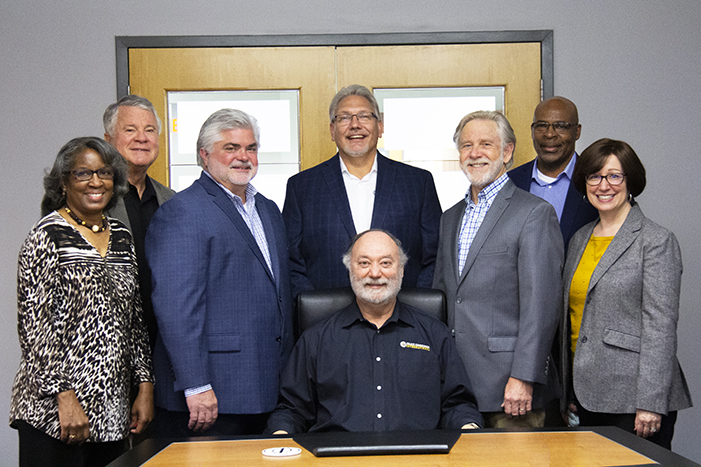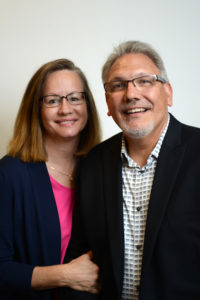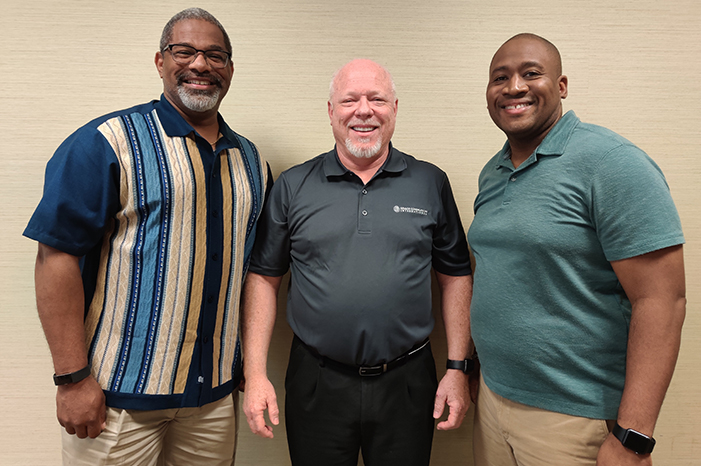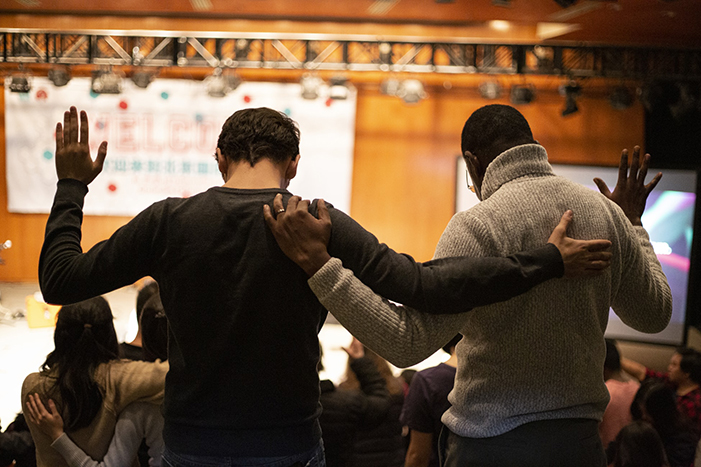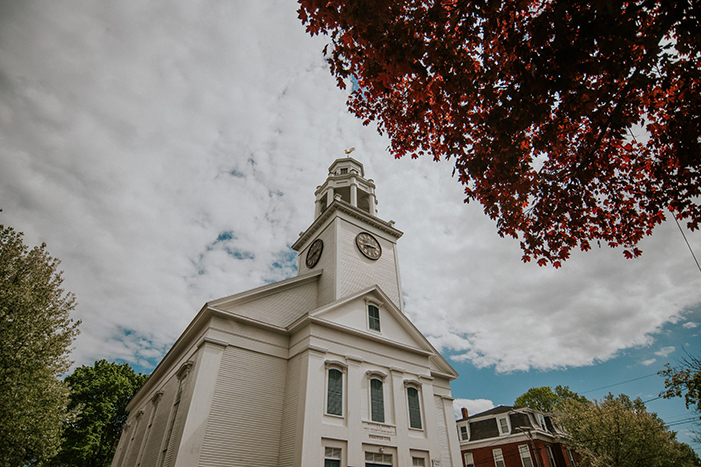Watch video on YouTube: https://www.youtube.com/watch?v=c1y4xegbBwo
Program Transcript
Over the past two years, we have been teaching, promoting, and reporting about what we call the “Team-Based, Pastor-Led” model for congregational oversight. It is beginning to lodge in our thinking and vocabulary, and it is also being manifest in the shape of our ministry practices.
I am impressed with how this expression of ministry is translatable to all 6 regions of GCI around the world. Our African Superintendent Kalengule Kaoma said this in a recent monthly report.
We re-stated our Vision 2025 of being a Healthy Church that is Living and Sharing the Gospel through the three ministry avenues of Faith, Hope, and Love. We then spent time discussing “How to create a Healthy Faith Avenue, Hope Avenue, or Love Avenue”. The seminar was very timely as it became clear that as we prepare to re-open our churches, we can make a clean break with the past, and chart a new journey of Faith, Hope, and Love towards 2025. We can develop new habits, new plans, and new ways of doing ministry in line with our Vision.
This was music to my ears and to my spirit. Having common ministry practices supported by a common language and ministry tools positions us to better join with Jesus as a denominational movement.
As we launch into 2021, we will emphasize the Faith Avenue. We are calling this “Faith Forward.” The COVID year has slowed us down on many levels, and yet it has created a season of deeper examination and reflection. I am happy to say that we have used this time to revise and update publications, manuals, etc. It has also provided space to create fresh ideas and new support material. An expanded view of the Faith Avenue is one of the new pieces.
The Faith Avenue is about discipleship – believers growing in their walk with Jesus as well as their walk with their Christian brothers and sisters. Growing deeper in relationship with Christ and becoming more like him is the faith forward that we desire, and this best happens in the community and life of the church.
We talk about the Faith Avenue in the “Three C” subsets: Community-building, Connect Groups, and Cross-Generational Care.
Community-Building: Spending meaningful time with the church family in activities and events with the goal of growing deeper in relationships.
Connect Groups: Small groups gathering typically in the comfort of members’ homes for relationship building and spiritual growth.
Cross-Generational Care: Recognizing and meeting the needs of the different life stages in our congregation.
These three areas define where we establish Faith Avenue ministries and help to provide spaces for ministry leaders and ministry workers.
How will we know that our Faith Avenue ministries are making a difference? Here are some key markers.
- Church Life is happening outside of the Sunday Service
- New disciples are being formed
- Existing disciples are growing in relationship with one another & in following the way of Jesus
There will be much more to come as we dive into 2021. We will not neglect the other Avenues of Love and Faith, rather we will highlight the aspect of the Faith Avenue. Many of our articles and church hacks will further educate our church about ways they can further develop the Faith Avenue.
It is my hope that we can see the person of Jesus through the lenses of Faith, Hope and Love. If this is who he is, then it only makes sense that his ministry would exude his nature and find expression in practical application.
I pray that 2021 will be the Post-COVID year we all hope for. I also encourage you to continue to learn and apply the Christ-centered aspects of Faith, Hope, and Love as you continue to live and share the Gospel.
Let me end my message with a foundational Bible passage.
I have been crucified with Christ; and it is no longer I who live, but it is Christ who lives in me. And the life I now live in the flesh I live by the faith of the Son of God, who loved me and gave himself for me.
Galatians 2:19-20 (NRSVA)
May the faith of Christ in you and the faith of Christ in me be the catalyst for our collective “Faith Forward.”
I am Greg Williams updating you about the life of the church.
Program Transcript
Over the past two years, we have been teaching, promoting, and reporting about what we call the “Team-Based, Pastor-Led” model for congregational oversight. It is beginning to lodge in our thinking and vocabulary, and it is also being manifest in the shape of our ministry practices.
I am impressed with how this expression of ministry is translatable to all 6 regions of GCI around the world. Our African Superintendent Kalengule Kaoma said this in a recent monthly report.
We re-stated our Vision 2025 of being a Healthy Church that is Living and Sharing the Gospel through the three ministry avenues of Faith, Hope, and Love. We then spent time discussing “How to create a Healthy Faith Avenue, Hope Avenue, or Love Avenue”. The seminar was very timely as it became clear that as we prepare to re-open our churches, we can make a clean break with the past, and chart a new journey of Faith, Hope, and Love towards 2025. We can develop new habits, new plans, and new ways of doing ministry in line with our Vision.
This was music to my ears and to my spirit. Having common ministry practices supported by a common language and ministry tools positions us to better join with Jesus as a denominational movement.
As we launch into 2021, we will emphasize the Faith Avenue. We are calling this “Faith Forward.” The COVID year has slowed us down on many levels, and yet it has created a season of deeper examination and reflection. I am happy to say that we have used this time to revise and update publications, manuals, etc. It has also provided space to create fresh ideas and new support material. An expanded view of the Faith Avenue is one of the new pieces.
The Faith Avenue is about discipleship – believers growing in their walk with Jesus as well as their walk with their Christian brothers and sisters. Growing deeper in relationship with Christ and becoming more like him is the faith forward that we desire, and this best happens in the community and life of the church.
We talk about the Faith Avenue in the “Three C” subsets: Community-building, Connect Groups, and Cross-Generational Care.
Community-Building: Spending meaningful time with the church family in activities and events with the goal of growing deeper in relationships.
Connect Groups: Small groups gathering typically in the comfort of members’ homes for relationship building and spiritual growth.
Cross-Generational Care: Recognizing and meeting the needs of the different life stages in our congregation.
These three areas define where we establish Faith Avenue ministries and help to provide spaces for ministry leaders and ministry workers.
How will we know that our Faith Avenue ministries are making a difference? Here are some key markers.
- Church Life is happening outside of the Sunday Service
- New disciples are being formed
- Existing disciples are growing in relationship with one another & in following the way of Jesus
There will be much more to come as we dive into 2021. We will not neglect the other Avenues of Love and Faith, rather we will highlight the aspect of the Faith Avenue. Many of our articles and church hacks will further educate our church about ways they can further develop the Faith Avenue.
It is my hope that we can see the person of Jesus through the lenses of Faith, Hope and Love. If this is who he is, then it only makes sense that his ministry would exude his nature and find expression in practical application.
I pray that 2021 will be the Post-COVID year we all hope for. I also encourage you to continue to learn and apply the Christ-centered aspects of Faith, Hope, and Love as you continue to live and share the Gospel.
Let me end my message with a foundational Bible passage.
I have been crucified with Christ; and it is no longer I who live, but it is Christ who lives in me. And the life I now live in the flesh I live by the faith of the Son of God, who loved me and gave himself for me.
Galatians 2:19-20 (NRSVA)
May the faith of Christ in you and the faith of Christ in me be the catalyst for our collective “Faith Forward.”
I am Greg Williams updating you about the life of the church.
GCI President, Dr. Greg Williams, gives an update on the life of Grace Communion International. Greg talks about the significance of the Faith Avenue as we move forward into 2021.




